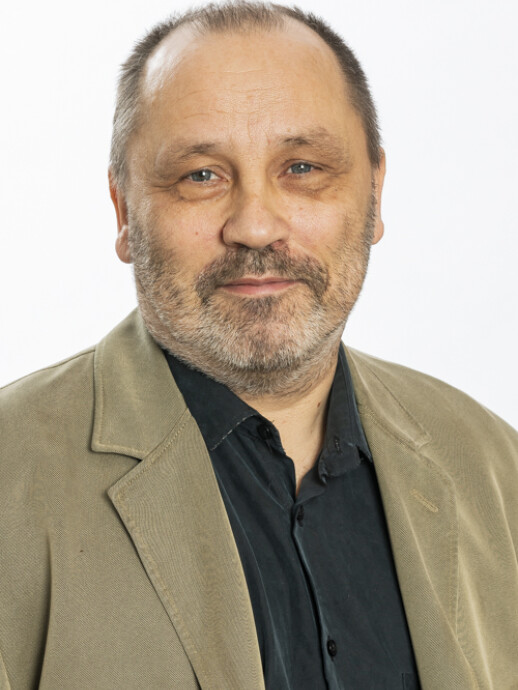Globally disproportionate overconsumption of natural resources threatens the life supporting systems of our societies. The alarming rate of biodiversity loss and progression of climate change are man-made disasters that most evidently impact our future.
Thus, Finland Futures Research Centre works for enabling alternative, more sustainable futures. Our research, education, and development projects are interdisciplinary and international. Sustainable energy systems, climate change mitigation and adaptation, resource efficiency and sustainable and just bioeconomy are some of our key topics.
We aim to find novel approaches to complex eco-social issues through e.g. capacity building in higher education in the Global South, by developing new tools for modelling sustainability and analysing its indicators, by working for transnational futures literacy, and by supporting crosscutting climate education in Finnish universities.
Ongoing Research and Development Projects:
BIODIFUL is an interdisciplinary research project funded by the Strategic Research Council within the Academy of Finland. It aims at creating a network of change agents who want to seed the urgently needed environmental transformation, and to equip them with knowhow, courage and faith – biodiversity respectful leadership.
Research team at Finland Futures Research Centre is working on the fifth work package that takes a deep look at the institutional structures that hinder or support the necessary sustainability transformation. Law, regulations and the political and economic guidance methods constitute the frames within which the individuals and organizations function: it is essential to understand the structural barriers of environmentally friendly action. It is even more important to find such means of overcoming them that support the radical change towards making our societies genuinely sustainable.
The project is carried out during 2021-2027.
Further information: Sari Puustinen, FFRC
Worldwide, more than 700 million people live on islands (~9%) which are frequently considered ideal environments for the transition to 100% renewable energy systems. Islands are hotspots of biocultural diversity and sociocultural dilemmas, making them a perfect case studies for the assessment of sustainable economic growth. Nevertheless, the energy transition in islands is a challenging global issue due to island economies are vulnerable to global climate changes, most of them are highly dependent from oil exportation. Could the challenge of assessing the energy resilience of islands be solved by taking into account a more holistic understanding of the synergies and trade-offs between political, economic, social, technical (energetic) and environmental aspects for sustainable development? Answering this question is the main aim of M4IEMA project.
This project is a Horizon Europe MSCA PF-project (#101205310) and it is conducted during 1.10.2025-30.9.2027.
Further information: Leonardo Peña Pupo, Finland Futures Research Centre
The ENERGIAA! project plays a key role in supporting the sustainable growth and competitiveness of small and medium-sized enterprises in Satakunta. As the green transition accelerates, companies face both new opportunities and increasing demands related to energy efficiency, renewable energy use, carbon neutrality, and responsible business practices. ENERGIAA! helps SMEs navigate this transition by providing knowledge, tools, and expert support for identifying and developing green energy solutions, early-stage innovations, and new business concepts.
Through collaboration with regional partners, an open innovation environment, and access to multidisciplinary expertise, the project enables companies to strengthen their capabilities, explore new markets, and connect with emerging value and supply chains in the green energy sector. By turning sustainability into a source of innovation and competitive advantage, ENERGIAA! contributes to a more resilient, future-oriented, and carbon-neutral business landscape in Satakunta.
The project is carried out at the University of Turku in collaboration between the Pori Unit of the Turku School of Economics (co-ordination), Finland Futures Research Centre and the Department of Mechanical and Materials Engineering. It is funded during 1.10.2025–31.5.2027 by the European Union and Central Finland ELY Centre.
Further information: Sari Söderlund, FFRC

The Fair, Inclusive and Sustainable Energy Transition in Lao PDR (FAIR) research project investigates strategies for promoting social equity within energy policy development and implementation in Lao PDR, focusing on marginalised groups.
The study explores participatory approaches, frameworks for integrating local knowledge, and methodologies that address these groups’ unique socio-economic and sustainability challenges. The project develops plans and methodologies for the construction of strategies, tools and policies to reduce the barriers to a fair and sustainable energy transition in Lao PDR.
Consortium:
- Finland Futures Research Centre, University of Turku
- Laos Social Research
- Ministry of Energy and Mines, Lao PDR
- National University of Laos, NUOL
Funding: Climate Compatible Growth, UK Aid during 3/2025 to 12/2026,
Further information: Anaely Saunders Vazquez & Jyrki Luukkanen
SISU is a three-year research project that started in autumn 2023. It is part of the Strategic Research Council’s six-year JUST TRANSITION program.
The multidisciplinary research team of the SISU project models the macroeconomic impacts of new solutions to help people recognize different future scenarios, and the effects and experiences related to them. SISU provides spaces where people can create heritage futures – meanings, practices, and skills – based on sufficiency, which will leave future generations a sustainable world where people can thrive.
SISU seeks to harness the untapped potential of sufficiency solutions. The main aim is to ensure that the green transition and basic welfare state promises can be realized even in conditions where the economy does not grow.
The SISU consortium consists of research teams from the University of Eastern Finland, Demos Helsinki, LUT University, University of Turku and XAMK (South-Eastern Finland University of Applied Sciences). The consortium is led by professor Arto O. Salonen from the University of Eastern Finland. Adjunct Professor Katriina Siivonen from Finland Futures Research Centre acts as a deputy director for the consortium, as well as leads the work package 'Heritage Futures for just transformation'.
Further information: Katriina Siivonen
UNESCO Chair in Learning Society and Futures of Education project is part of the global Futures Literacy network coordinated by UNESCO. The project develops futures education contents and methods for informal and formal education that can be utilized worldwide.
Further information: Markku Wilenius & Laura Pouru

